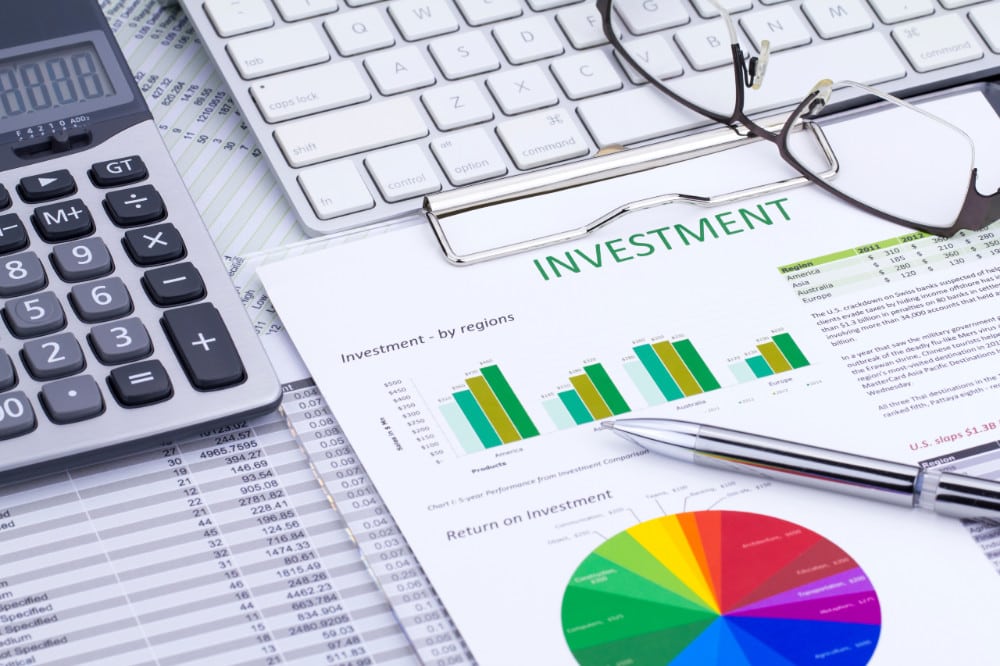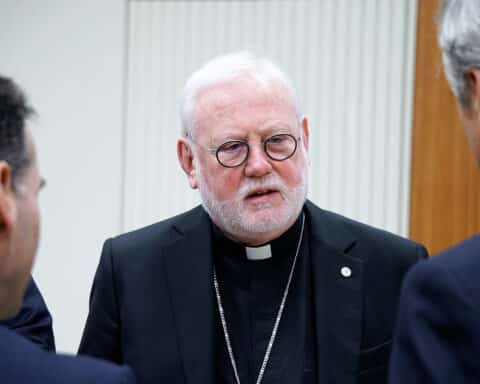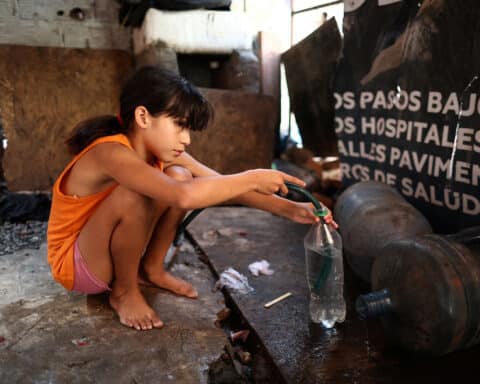“The Vatican called on Catholic institutions and believers around the world to avoid investing their money in companies that produce fossil fuels.” So began the Wall Street Journal’s reporting on Mensuram Bonam (“In Good Measure”), an instruction on so-called “Faith Consistent Investing,” published last week by the Pontifical Academy of the Social Sciences.
Readers of the Journal reacted critically. “Fossil fuels are the only way to feed the world. Methane makes nitrogen fertilizer that increases yields over 50% for crops,” wrote one. “Should all churches refuse to heat their churches with fossil fuels? Not use electricity generated by fossil fuels?” commented another.
Well, that sentence is a good hook, and it sure got everyone’s attention. But is it true?
First, as regards the authority of the document: It was published by a pontifical academy, and many non-Catholics are listed as participants in its drafting, such as the economist Jeffrey Sachs. Recently, another papal academy called into question Church teaching on contraception. So just what authority does the document have? To say simply that it comes from “the Vatican” seems too strong and surely is misleading. Cardinal Peter Turkson, head of the pontifical academy, has said explicitly that it lacks “proscriptive power or force.”
Second, the document says no such thing about fossil fuels. It contains only one sentence about fossil fuels, from an address by Pope Francis: “Civilization requires energy, but energy use must not destroy civilization. … There is an urgent need to develop policies so that, in the next few years, the emission of carbon dioxide and other highly polluting gases can be drastically reduced, for example, substituting for fossil fuels and developing sources of renewable energy.” One can quarrel with whether carbon dioxide is a “highly polluting gas,” or whether a transition within only a few years is reasonable. But, otherwise, the judgment seems sensible and true.
As investing advice, it would seem to encourage investment in renewable resources, in the long term and in addition to fossil fuels, not instead of them.
Not that there aren’t lots of problems in the document. Perhaps we can be honest about them, given that it has no “proscriptive power or force”?
Above all, it’s too long, clocking in at over 45 pages, including many repetitious lucubrations on Catholic social thought in sentences that are alternately bizarre (“In the imprint of the Trinity, the human person, society, and the natural world inhere in one another — an embeddedness that is also a dance;”), childish (“For investors with faith, the view of the world formed by numbers and analytics is forever incomplete”), and platitudinous (“because you can do something with wealth, there is an obligation to use this ability responsibly”) .
If written for fund managers and busy professionals, it should contain at the start an “executive summary.” It does not. Naturally, therefore, everyone goes to the last pages of the document, which gives an appendix of 24 juicy “exclusionary criteria.” Presumably, these are intended as filters for investments. And yet, they imply no concrete guidance.
For instance, “capital punishment” is one such criterion. “Countries which apply the death penalty place themselves above the fundamental right to life.” Are we meant to infer, then, that investments are discouraged in any country which permits the death penalty? — an absurd idea. (Legal abortion is not even dealt with in that way by Mensuram Bonam, naturally.) Yet, as for instruments for applying the death penalty, such as guns, knives, ropes and muscle relaxants, they have many and diverse uses. How, then, is the criterion of “capital punishment” to be employed? We have no clue.
Another exclusionary criterion refers to “totalitarian regimes [which] exercise power through dehumanizing fear. Neither human life nor civil society can develop fully when powers sequester themselves in privilege while abusing the rights of citizens.” Then, apparently, investment is discouraged in all businesses that have supply chains running through China — also an impracticable and absurd idea.
I note that Mensuram Bonam contains no discussion — none at all! — of formal versus material cooperation.
Elsewhere, we find contradictions with other Vatican authorities. For example, Mensuram Bonam proposes that we avoid investments in “embryo stem cell research”: “The priority of human life prohibits using embryo stem cells for research purposes.” I agree entirely! Therefore, Moderna, Astrozenica and Johnson & Johnson should not use them. So, presumably, Mensuram Bonam is proposing that we should not invest in such companies. But it’s unclear why it should be fine to buy vaccines from such companies, as the CDF has said, while it’s inadvisable to invest in such companies. Patronizing a product seems as close a connection as investing in its production.
Mensuram Bonam’s exclusionary criteria also seem glaringly incomplete. It discourages investment in violent computer games and pornography, which is good, but not investment in morally problematic films or music, or addictive social media apps — serious omissions. And, as the document seems naively sanguine about government and regulation, it warns against investing in entities that exploit offshore tax havens and accounting loopholes, but not those which profit from regulatory capture or “rent seeking.”
There are some gross, almost laughable errors in the document. The very title is a mistake. It comes from the Sermon on the Plain, “give, and it will be given to you; good measure, pressed down, shaken together, running over, will be put into your lap” (Lk 6:38). Clearly, Jesus is teaching about free gifts given without expectation of return, not investing with an expected rate of return. But the document twists Our Lord’s teaching to say that “Faith Consistent Investment” will be rewarded abundantly. “There is growing acknowledgement that responsible investing can deliver equal or better ultimate performance (mensuram bonam) over the long term: do well by doing good.” What evidence does Mensuram Bonam cite for this tilt toward a Gospel of prosperity? Only one source: an opinion piece from Morningstar from 2016! I suppose on such a slim basis, fund managers are meant to put at risk billions of their clients’ holdings using Mensuram Bonam‘s “exclusionary criteria.”
Another error is the document’s claim that the word “invest” comes from the Latin investire, which means “to clothe.” The very first investment, it claims, was when God made skins for Adam and Eve and “clothed” them, removing their vulnerability, which reveals the nature, it claims, of any investment: “So it remains today, with each investment trading-off risk (or vulnerability) for future protections and benefits. Investing … is a capability inherited from God to creatively foresee, mitigate, and resolve creaturely vulnerabilities.” Actually, the word investire is not classical Latin and is not used in the Vulgate. (Jerome’s term at Genesis 3:21 is induit.) Besides, an investor gets rewarded precisely because he takes on risk, not because he removes it. And the modern innovation of using “investment” to mean, precisely, “the use of money to purchase assets” arose in the 17th century as a technical term to describe the East Asia Company’s practice of immediately converting gains from trade into new goods (as the Oxford English Dictionary tells us). When the company used its profits to buy new goods for trade, it was thought of as “investing,” that is, clothing that value now in the shape of tradable consumer goods.
In another place, Mensuram Bonam claims that “St. Francis of Assisi had a keen sense for nature’s holiness,” giving as evidence that “In his Canticle of the Creatures he called our planet, ‘Sweet, Mother earth.'” Yet then in a footnote, it gives the line from the Canticle, correctly, as “Praised be You, my Lord, through our Sister Mother Earth” (my emphasis). Oops. Did anyone proofread this thing?
I give these examples as evidence of what I regard as the document’s lack of persuasiveness, and the apparent incompetence of at least its editors. Other commentators may well point out how it vacillates between a show of humility (we “stand with investors in this crucible of quandaries”) and expressions of grandiosity, to the effect that it aims to usher in a new “paradigm,” new “structures” and a new “architecture” for the entire global economy. Readers’ concerns in this regard will not be allayed by Mensuram Bonam’s calculated use of the word “reset”: It issues a “call to reset” and says that, in view of its recommendations, “the very system of investment reasoning is reset.”
Or other commentators will point to the mischief in Mensuram Bonam’s enthusiastic endorsement of existing, “woke” ESG frameworks — whereas every sensible Catholic business person I know believes that his or her conscience is coerced by most of these frameworks and is yearning for a visible and sufficiently prestigious authority (the Vatican, perhaps?) to propose a framework acceptable to Catholics, which suitably recognizes the family as the basic cell of society.
A lost opportunity, then? No, I’ve tried to argue, alas — not by the team that put together Mensuram Bonam.
Michael Pakaluk is a professor of ethics and social philosophy in the Busch School of Business at The Catholic University of America in Washington, D.C., and a member of the Pontifical Academy of St. Thomas Aquinas.





